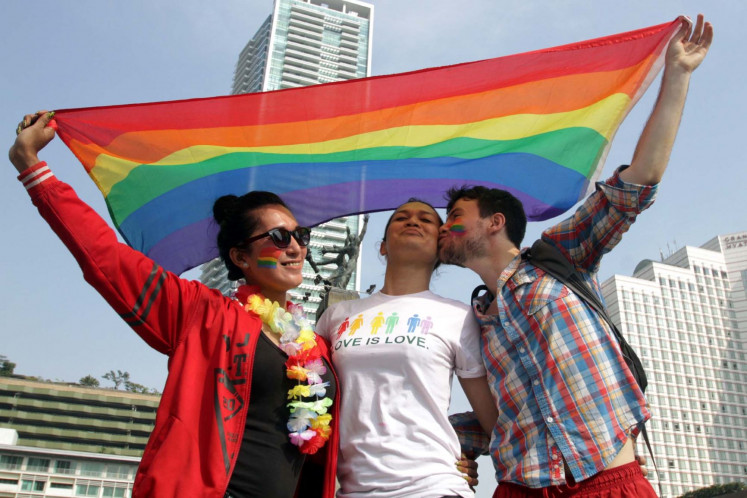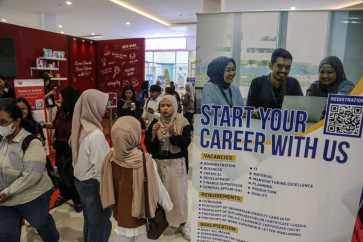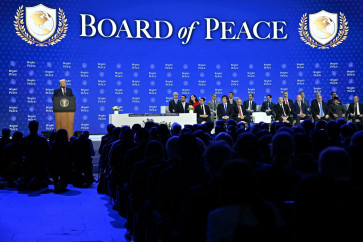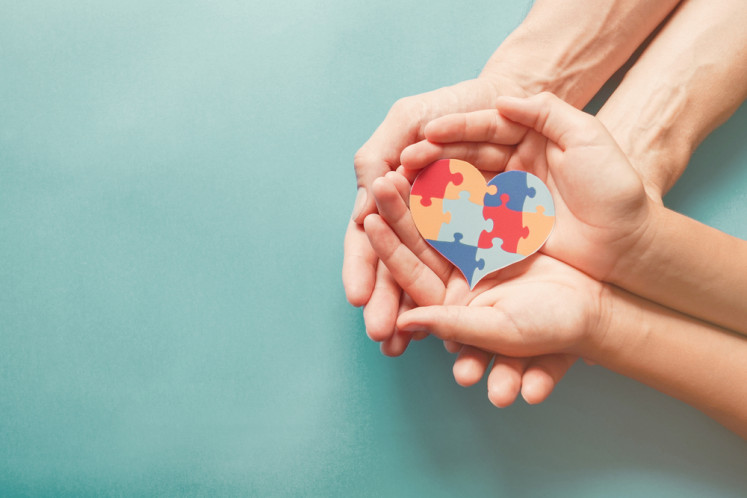Popular Reads
Top Results
Can't find what you're looking for?
View all search resultsPopular Reads
Top Results
Can't find what you're looking for?
View all search resultsBreaking the silence on gender identity in Asia Pacific
Every person, everywhere – without distinction – is entitled to a life free from violence, persecution, discrimination and stigma.
Change text size
Gift Premium Articles
to Anyone
F
or many lesbian, gay, bisexual, transgender, queer and intersex (LGBTQI) people, coming out and being accepted is still a long winding road to go.
Rights activist Rukhshana Kapali has been fighting for a registration number at Tribhuvan University, the oldest and largest in Nepal.
The first transwoman in Nepal to apply for legal documentation as “female” said she has been denied enrollment because her educational certificates from school are not congruent with her lived gender.
And the institution that issued those certificates has refused to amend them for her. Kapali was identified as a boy until grade 10 but passed grades 11 and 12 as a girl.
“Transgender people cannot easily access education as their cisgender peers,” she revealed during the 10th Asia Pacific Conference on Reproductive and Sexual Health and Rights (APCRSHR10) online seminar.
Nepal is often portrayed as a one of the progressive countries to recognize rights of transgender, third gender and non-binary people, allowing people who refuse to identify as men or women to receive citizenship certificate under the “other” category.
Kapali, however, said that one of the biggest problems in Nepal was that the state thinks the five fixed categories of LGBTI are a subset of “third gender” – completely quashing the understanding of sexual orientation, gender identity and sex characteristics.
“Forcing transgender men and women as being the 'third gender' is not the establishment of our rights, but the establishment of a violation,” the 21-year-old blogger and writer revealed during the conference’s Voice from the Frontline session.
Hug please: A passerby hugs an activist campaigning for the rights of the lesbian, gay, bisexual and transgender (LGBT) community in Jakarta in June 2019. (JP/Seto Wardhana)Counted among the most vulnerable and marginalized in many parts of the world, including in the Asia-Pacific region, LGBTI people experience discrimination – in the name of tradition, religion and culture – that prevent them from living with dignity and quality.
"It is very important for all genders to achieve equal access to sexual and reproductive health and other social services, including participation in economic activities,” said Chivorn Var, founder and executive director of Reproductive Health Association of Cambodia (RHAC), which was also the conference’s convener.
“It is also an important element to achieve universal health coverage that promises to leave no one behind.”
He was making the statement during the 14th and final session of the conference, jointly organized by RHAC, UNFPA and Citizen News Service (CNS). Some 19,000 participants of 77 countries took part in the conference sessions.
As health systems and services come under immense pressure around the world due to the pandemic, it has raised concern on its effects on the already marginalized and excluded groups.
In countries where same-sex relations are criminalized or transgender people targeted, people may avoid testing and treatment for fear of arrest or violence.
Pakistani transwoman Sobo Malik revealed that limited access to health services had resulted in self-medication.
According to her study, she said, all participants had started taking hormonal medicines with consulting doctors or taking hormonal test.
Eighty percent, she said, were following the same dosage taken by their other transgender friends, while 20 percent had done some research through the internet but never consulted any doctor.
“More than 80 percent reported they suffered depression and anxiety after the intake of hormonal medicines within the period of two months, and 40 percent also reported severe pain in the lower abdomen and testicles,” said Malik of the Khawaja Sira Society, a trans-based and led organization which works for the well-being of transgender in Pakistan.
“Transgender are at high risk of mental and physical problems due to lack of awareness and lack of medical facilities in Pakistan.”
Love is love: Activists from Lesbian, Gay, Bisexual and Transgender (LGBT) communities stage a rally calling for greater protection of their rights in Jakarta in this file photo taken before the pandemic. (Courtesy of Tribunnews/Irwan Rismawan)In Indonesia, Ciptasari Prabawanti, director of Siklus Indonesia, a nonprofit organization that works on public health, said that transgender women could access health services.
“In the last 10 years, we can see so much improvement with regard to access to health services for all citizen, including transgender women. They are accepted at community health centers [puskesmas] for health care and treatment as long as they show their ID card,” Ciptasari told The Jakarta Post by email.
But risks remain. At the conference, she presented her 2011 study that took a closer look at clients of 250 transgender sex workers who had not received attention in research and in HIV infection prevention efforts.
Her research, conducted in Jakarta, aimed to find out whether clients could play an important role as a “bridging population” in the prevention of the spread of HIV.
The study found that the clients’ average age was 27 years, over 50 percent had completed high school or more; and most of the clients were married – but only about 11 percent were living with a wife or regular female partner.
She said more than 80 percent of the clients visited more than once and only 50 percent of them always use condoms when engaging in anal sex.
“These findings suggest they had multiple sex partners during a period of time, whilst they did not consistently practice condom use during every sex act […].”
Identifying as a member of the LGBT community is not illegal in Indonesia, the world’s largest Muslim-majority country, but laws and regulations do not protect the minority from discrimination and persecution.
Recent incidents include a social assistance prank against transwomen in Bandung, West Java; a transgender woman accused of stealing was burned to death by a group of men, who were only charged with aggravated assault instead of murder; the arrest of same-sex couple in South Sulawesi; and the imprisonment and dismissal of a soldier for having same-sex intercourse with another officer.
The controversial family resilience bill introduced earlier last year cites the need for family members to report any “sexual misconduct”, including homosexuality.
The stigma is further exacerbated by the Indonesian Psychiatrists Association, which still considers homosexuality, bisexuality and transsexualism a mental disorder that can be cured through proper treatment.
Within the community, according to a 2018 survey conducted by Jakarta-based pollster Saiful Mujani Research and Consulting, 87.6 percent of over 1,200 respondents from the general public consider the LGBT community a threat, while 81.5 percent of those surveyed say it is prohibited by religion.
Another survey by Pew Research Institute, which polled 38,426 respondents across 34 countries in 2019, found that most respondents in Indonesia disagreed with the notion that homosexuality should be accepted by society, with 80 percent of them saying homosexuality should be discouraged.
Only 9 percent of Indonesians in Pew’s survey agreed homosexuality should be accepted – an increase from only 3 percent in 2013.
LGBT rights campaigner and scholar Dede previously told the Post that the increasing public tolerance largely contributed to movements coming from different backgrounds, such as from progressive preachers, scholars and artists, who join the fight for human rights enforcement and diversity.
"And for the public, don't foster hate against someone just because they are different from you, whether in terms of ethnicity, religion, sexual orientation, or gender identity and expression."













